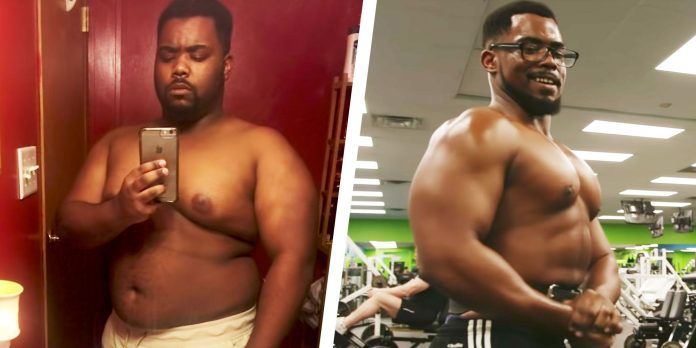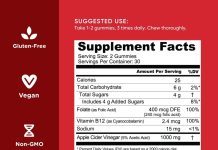As we age, many of us may find ourselves asking the question, “How can I lose weight as I age?” It’s a common concern that stems from the changes our bodies undergo over time. Our metabolism slows down, making it harder to shed those extra pounds. Combine that with a naturally decreased muscle mass and hormonal changes, and weight loss can become a frustrating and elusive goal. However, with the right approach and a bit of determination, it is possible to maintain a healthy weight and feel great as we age. In this article, we will explore various strategies and tips that can help us achieve our weight loss goals, regardless of our age.
Review contents
1. Understand the Science of Weight Loss
Losing weight as we age can become more challenging due to various factors. By understanding the science behind weight loss, we can make informed decisions and develop effective strategies.
1.1 How Metabolism Changes with Age
Metabolism, the process by which our bodies convert food into energy, naturally slows down as we get older. This can make it harder to burn calories and lose weight. However, there are ways to boost metabolism, such as engaging in regular physical activity and building muscle mass through strength training exercises.
1.2 Importance of Calorie Deficit
To lose weight, we must create a calorie deficit, which means consuming fewer calories than we burn. As we age, our calorie needs may decrease, so it’s crucial to adjust our diet accordingly. By tracking our daily calorie intake and making mindful food choices, we can create a calorie deficit and promote weight loss.
1.3 Muscle Mass and Weight Loss
Preserving and building muscle mass becomes increasingly important for weight loss as we age. Muscles burn more calories than fat, even at rest. Incorporating strength training exercises into our routine can help increase muscle mass, boost metabolism, and facilitate weight loss. Additionally, maintaining muscle mass can improve overall strength and mobility, enhancing our quality of life.
2. Adopt a Balanced and Nutritious Diet
A balanced and nutritious diet is the foundation of a successful weight loss journey, regardless of our age. By focusing on whole foods and controlling portion sizes, we can nourish our bodies while promoting weight loss.
2.1 Focus on Whole Foods
Whole foods are minimally processed and rich in nutrients. They include fruits, vegetables, whole grains, lean proteins, and healthy fats. These foods are generally lower in calories and higher in fiber, vitamins, and minerals, making them an excellent choice for weight loss. By incorporating a variety of whole foods into our meals, we can ensure we’re getting the necessary nutrients while managing our weight.
2.2 Control Portion Sizes
While the quality of our food choices is essential, the quantity also plays a significant role in weight loss. Controlling portion sizes allows us to manage our calorie intake effectively. Using measuring cups, a food scale, or visual portion control techniques can help us understand appropriate portion sizes. It is also helpful to listen to our body’s hunger and fullness cues, eating until satisfied rather than overeating.
2.3 Incorporate Lean Protein
Protein plays a crucial role in weight loss, as it helps build and preserve muscle mass while increasing satiety. Incorporating lean protein sources such as chicken, fish, tofu, legumes, and Greek yogurt into our meals can help us feel full and satisfied for longer, reducing the likelihood of overeating.
2.4 Include Fiber-Rich Foods
Fiber is another essential component of a weight loss diet. It adds volume to our meals, helps regulate blood sugar levels, and promotes digestive health. Foods rich in fiber include fruits, vegetables, whole grains, and legumes. By incorporating these foods into our diet, we can feel more satisfied with fewer calories, aiding in weight loss.
2.5 Limit Added Sugars and Processed Foods
Added sugars and processed foods are often high in calories and low in nutrients, making it difficult to lose weight. These foods can lead to increased cravings, overeating, and a higher risk of chronic diseases. By minimizing our intake of sugary beverages, snacks, and processed foods, we can reduce empty calorie consumption and improve our overall health.
2.6 Stay Hydrated
Staying hydrated is essential for overall health and weight loss. Water can help control appetite, boost metabolism, and replace high-calorie beverages. Aim to drink an adequate amount of water throughout the day and consider replacing sugary drinks with herbal tea or infused water for added flavor and hydration.
3. Create a Sustainable Exercise Routine
Regular physical activity is crucial for weight loss, regardless of age. By creating a sustainable exercise routine, we can improve our overall fitness level, burn calories, and support our weight loss efforts.
3.1 Cardiovascular Activities
Cardiovascular activities, such as walking, jogging, cycling, or swimming, help elevate our heart rate and burn calories. Aim for at least 150 minutes of moderate-intensity aerobic exercise or 75 minutes of vigorous-intensity aerobic exercise per week. Find activities that you enjoy, and gradually increase the duration and intensity to challenge your body and promote weight loss.
3.2 Strength Training Exercises
Strength training exercises are crucial for maintaining and increasing muscle mass, which can enhance metabolism and support weight loss. Incorporate exercises such as squats, lunges, push-ups, and weightlifting into your routine. Start with lighter weights and gradually increase the resistance as you become more comfortable. Aim to strength train at least two days a week, targeting different muscle groups each time.
3.3 Flexibility and Balance Workouts
Flexibility and balance workouts, such as yoga or tai chi, can help improve mobility, prevent injuries, and enhance overall well-being. These exercises also contribute to the variety and sustainability of your exercise routine. Incorporate flexibility and balance workouts into your schedule to promote overall fitness and weight loss.
4. Prioritize Sleep and Stress Management
Sleep and stress management play a vital role in weight loss and overall health. By prioritizing quality sleep and implementing relaxation techniques, we can support our weight loss goals.
4.1 Importance of Quality Sleep
Getting enough high-quality sleep is essential for weight management. Lack of sleep can disrupt appetite-regulating hormones, increase cravings, and lead to weight gain. Aim for at least 7-8 hours of sleep per night and establish healthy bedtime routines to promote restful sleep.
4.2 Stress and Weight Gain
Chronic stress can contribute to weight gain and hinder weight loss efforts. Stress triggers the release of cortisol, a hormone that promotes the storage of fat, particularly in the abdominal area. By managing stress through relaxation techniques, we can reduce cortisol levels and support weight loss. Incorporate activities such as deep breathing, meditation, or hobbies that bring joy and relaxation into your daily routine.
4.3 Relaxation Techniques and Mindfulness
Practicing relaxation techniques and mindfulness can help manage stress levels and improve overall well-being. Deep breathing exercises, meditation, yoga, or engaging in activities that promote relaxation can reduce stress and emotional eating tendencies. By incorporating these techniques into our daily lives, we can develop a healthier relationship with food and support long-term weight loss.
5. Seek Professional Guidance
Seeking professional guidance can significantly enhance our weight loss journey. Consulting with a dietitian, working with a physical trainer, or joining a weight loss program provides expert support and personalized guidance tailored to our specific needs.
5.1 Consult with a Dietitian
A dietitian can provide individualized nutrition advice, help create a meal plan, and address any dietary concerns or restrictions. They can also educate us about portion control, nutrient-dense food choices, and ways to modify our eating habits for effective weight loss.
5.2 Work with a Physical Trainer
Working with a physical trainer can help create a targeted exercise plan that maximizes our weight loss efforts. They can provide guidance on proper form and technique, recommend exercises based on our fitness level, and motivate us to push beyond our comfort zones.
5.3 Consider Joining a Weight Loss Program
Joining a weight loss program can offer a supportive community, structure, and accountability. Programs such as Weight Watchers or Jenny Craig provide resources, group meetings, and regular weigh-ins to track progress and offer guidance throughout the weight loss journey.
5.4 Doctor’s Advice for Medically Assisted Weight Loss
In some cases, medical intervention may be necessary for weight loss. Consulting with a healthcare professional can help determine if medications, supplements, or surgical procedures might be appropriate for our specific situation.
6. Stay Consistent and Patient
Consistency and patience are key to successful long-term weight loss. Adopting a gradual approach, setting realistic goals, and celebrating small wins along the way can help maintain motivation and foster a positive mindset.
6.1 Set Realistic Goals
Setting realistic goals is essential for sustainable weight loss. Instead of focusing solely on a specific number on the scale, aim for non-scale victories such as improved energy, increased strength, or better overall well-being. Set achievable goals and break them down into smaller milestones to track progress and stay motivated.
6.2 Track Progress and Celebrate Small Wins
Tracking progress is crucial for staying motivated and monitoring the effectiveness of our weight loss strategies. Keep a journal, use a smartphone app, or utilize a fitness tracker to record workouts, food intake, and other relevant data. Celebrate small wins along the way to acknowledge your achievements and maintain a positive mindset.
6.3 Maintain a Positive Mindset
Maintaining a positive mindset is essential for long-term success. Embrace self-compassion and practice positive self-talk throughout your weight loss journey. Surround yourself with supportive individuals who encourage and uplift you. Remember, weight loss is a journey, and setbacks may occur. Approach challenges with resilience and view them as opportunities for growth and learning.
7. Be Aware of Medications and Hormonal Changes
Certain medications and hormonal changes can affect weight management, especially as we age. Understanding these potential impacts and discussing them with a healthcare professional can help mitigate any adverse effects.
7.1 Effects of Certain Medications on Weight
Some medications, including certain antidepressants, antipsychotics, and corticosteroids, may cause weight gain or hinder weight loss. If you suspect that a medication is affecting your weight, consult with your healthcare provider to explore alternative options or strategies to manage the side effects.
7.2 Hormonal Changes and Weight Management
Hormonal changes, such as those experienced during menopause, can impact weight management. Fluctuating hormone levels can contribute to increased abdominal fat and a slower metabolism. A healthcare professional can help develop strategies to optimize hormonal balance and support weight loss efforts during these transitional stages.
8. Make Lifestyle Adjustments
Sustainable weight loss involves making lasting lifestyle adjustments. By increasing non-exercise physical activity, reducing sedentary behavior, and incorporating strength-building activities into daily life, we can promote weight loss and overall well-being.
8.1 Increase Non-Exercise Physical Activity
Non-exercise physical activity, such as household chores, gardening, or taking the stairs, can significantly contribute to calorie expenditure. Find ways to incorporate more movement into your daily routine by actively engaging in daily tasks and reducing the amount of time spent sitting or lying down.
8.2 Reduce Sedentary Behavior
Prolonged sitting or sedentary behavior can negatively impact our health and weight. Take regular breaks to stand up, move around, or stretch throughout the day. Consider using a standing desk, taking walking breaks during work, or engaging in active hobbies to reduce sedentary behavior.
8.3 Incorporate Strength-Building Activities into Daily Life
In addition to dedicated strength training sessions, find opportunities to incorporate strength-building activities into your daily life. This could include carrying groceries, doing bodyweight exercises during TV commercials, or using resistance bands while watching a show. By making strength-building a part of your daily routine, you can enhance muscle tone, boost metabolism, and support weight loss.
9. Stay Accountable with Support System
Having a support system can significantly impact our weight loss journey. Enlisting family and friends for support, joining social groups or weight loss communities, and finding an accountability partner can keep us motivated, inspired, and accountable.
9.1 Enlist Family and Friends for Support
Share your weight loss goals with your loved ones and ask for their support. Having a strong support system can provide motivation, encouragement, and accountability. Plan healthy meals or physical activities together, celebrate milestones, and lean on each other during challenging times.
9.2 Join Social Groups or Weight Loss Communities
Joining social groups or weight loss communities can provide a sense of belonging and support from like-minded individuals. Online forums, social media groups, or local weight loss programs can offer a platform to share experiences, gain insights, and receive encouragement throughout your journey.
9.3 Find an Accountability Partner
An accountability partner can serve as a source of encouragement and support. Choose someone who shares similar goals and values and establish regular check-ins to hold each other accountable. Sharing progress, discussing challenges, and celebrating successes together can make the weight loss journey more enjoyable and effective.
10. Embrace Healthy Habits for Long-Term Success
True success in weight loss lies in embracing healthy habits that can be sustained over the long term. By making sustainable changes, practicing mindful eating, and maintaining weight loss with healthy habits, we can achieve and maintain our desired weight.
10.1 Make Sustainable Changes
Focus on making gradual and sustainable changes to your lifestyle, rather than resorting to extreme dieting or short-term solutions. Incorporate healthier food choices, increase physical activity, improve sleep habits, and manage stress consistently. By creating a balanced and sustainable lifestyle, you can promote long-term weight loss and overall well-being.
10.2 Practice Mindful Eating
Mindful eating involves paying attention to the food we eat and the sensations we experience while eating. Slow down, savor each bite, and listen to your body’s hunger and fullness cues. By eating mindfully, we can develop a healthier relationship with food, better recognize our body’s signals, and avoid overeating.
10.3 Maintain Weight Loss with Healthy Habits
Weight loss shouldn’t be seen as a temporary endeavor but as a lifelong commitment to healthy habits. Continue to prioritize whole foods, portion control, regular physical activity, quality sleep, and stress management even after reaching your weight loss goals. By maintaining these healthy habits, you can sustain your weight loss success and enjoy a healthier and more fulfilling life.
In conclusion, losing weight as we age requires understanding the science of weight loss, adopting a balanced and nutritious diet, creating a sustainable exercise routine, prioritizing sleep and stress management, seeking professional guidance when needed, staying consistent and patient, being aware of medications and hormonal changes, making lifestyle adjustments, staying accountable with a support system, and embracing healthy habits for long-term success. By implementing these strategies and approaches, we can navigate the challenges of aging and achieve our weight loss goals while promoting overall health and well-being.



























